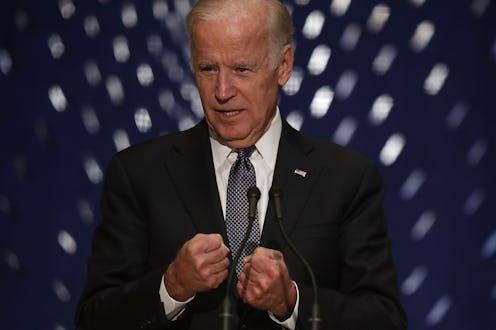News
More Electoral College Drama Could Be In Store
On Dec. 19, the 538 electors met in their respective home states and cast their ballots (mostly) according to the Election Day results. Which means that Donald Trump will become the 45th president of the United States of America. But just in case any naive souls thought this might mark the end of Electoral College drama, hold onto your hats. Because until the president-elect is actually sworn into office (happening Jan. 20, 2017), last-ditch efforts to stop a Trump presidency are all but guaranteed to persist. And one of them might come on Jan. 6, in the form of an objection filed at the official congressional count of the Electoral College votes.
It falls to Congress to tally and ratify the states' Electoral College votes. And the Constitution allows for members of the House of Representatives to raise objections to those votes. But in order for their complaints to go anywhere, at least one senator must also sign onto the representatives' Electoral College challenge. Federal law stipulates such, and it makes a lot of sense. After all, in a House of 435 representatives, it's not always so hard to find someone willing to rock the boat. But since each senator belongs to a state party of only two, and their reelection plans depend upon winning favor with a diverse state-wide electorate, raising challenges becomes much more dicey. Ergo, the objections must be, by necessity, serious and substantial.
But the practice does have recent precedent. In 2005, following the reelection of President George W. Bush, Ohio Rep. Stephanie Tubbs joined California Sen. Barbara Boxer in objecting to Ohio's Electoral College vote tally. Both women cited the need for voting reform as the reason behind their unlikely move, noting they did not expect to stop Bush from keeping his status as POTUS. Then-Vice President Dick Cheney granted the required two hours of debate, taking place in both chambers. Any objection can be overturned with a majority vote in both chambers, which is exactly what happened. The Tubbs-Boxer challenge marked only the second time in U.S. history (under current rules) that an Electoral College vote was challenged in Congress.
However, given the unique contentiousness of this election cycle, it is not difficult to imagine that challenges might be issued during the vote tally. House representatives from deep-blue states have little to lose by challenging the system that elected Donald Trump, and it doesn't hurt that such a move comes with a spotlight (we are talking about politicians here).
